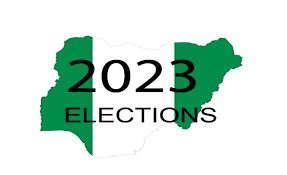How Climate Change creates an enabling environment for vote Buying in Nigeria:
By Oladosu Adenike
One of the existential crises of humanity is climate change. It is affecting all the sectors of a nation’s life. Its impact is fully felt especially in developing countries where there are weak democratic frameworks. Climate change already has an impact on democratic governance through its effects on food, security, conflicts, water scarcity, migration, and natural disasters among other consequences. Climate change and poverty are deeply interwoven because climate change disproportionately affects poor people in low-income communities and developing countries around the world. Climate change makes the vulnerable more susceptible to its debasing effects. The stakes are high as no country is immune to the effects of climate change. The connection between climate change and its impact on human well-being is increasingly invisible. According to a recent World Bank survey, climate change will push up to 130 million people into poverty over the next 10 years – unraveling difficult developmental gains – and could cause over 200 million people to migrate within their own countries by 2050.
Despite being among the lowest emitting countries for gas emissions, the poorer countries are reeling most from the effect of climate change. Accordingly, the climate is a deeply unfair one: the poorest people in the world contribute the least to climate change. When the various climatic elements fail, they lead to crop failure which derails the socioeconomic progress of people, mostly residing in local areas.
In Nigeria, climate change is leading to conflict, especially armed banditry and cattle rustling. In Northern Nigeria, climate change is already escalating the displacement of farmers and cattle breeders in most villages which forms the bulk of Nigeria’s voting bloc. Most parts of Nigeria’s voters reside in the villages (75%), hence situating climate change crises at the heart of the socio-political landscape. Unfortunately, the climate change crises are leading to clashes among farmers and herdsmen resulting in serious humanitarian crises. Among which is the displacement of people from their ancestral homes to internally displaced camps around the city centers. Also, due to Nigeria’s slow bureaucratic processes, the transfer of polling units from rural areas to urban places is tedious. This could induce people to be involved in the activities of vote buying thereby truncating our democratic process of the selection of credible leaders due to money politics.
Recently, the northwest region state-heads comprising seven governors wrote a letter to the president informing him of the likelihood of an election not being held due to insecurity caused by climate change-induced conflicts. This can affect 40 million Nigerians. Recent studies have implicated climate change-induced poverty as the major inducer of vote buying in recent elections in Osun and Ekiti states, especially in the recent flooded local governments and districts that affected 32 states in Nigeria; which has led to the loss of their livelihoods due to environmental instability. They're making them vulnerable to be involved in vote buying as low as 1 dollar or even a bottle of minerals.
According to a World Bank report in 2020, it says that 83 million people live below the poverty threshold which signifies that almost half of the Nigeria population lives within the means of $381.75 per year which further signifies that they barely feed beyond 2 dollars per day since there are 365 days in a year. This tells in the nation’s economy through the rise in inflation. This will spur vote buying in many instances; whereby the political class takes “advantage” of poor people to get what they want. This is why the true form of election cannot be determined in such a scenario. Imagine someone that would barely feed 1 dollar per day could, what will be the faith of such a person if he or she is given just 2 dollars or even a bottle of minerals? Using vote-buying and techniques in making the powerful; powerless is not durable for our democracy at large. That is why poverty remains a political weapon that is used by the political class to get their way to power. This alone is a big threat to our democracy.
Climate change is destroying the credibility of the process of electing leaders from the president down to local government chairmen in most towns and villages in Nigeria due to the interplay of poverty and other environmental instabilities which results in the loss of polling units and permanently displaced. For Nigeria to have a smooth electioneering season in 2023, we must stem the tides of climate change because climate justice means justice for all.
Adenike Oladosu is a climate justice activist & ecofeminist
Email; oladosuadenike32@gmail.com






0 Comments
We are open to listening to your comment.